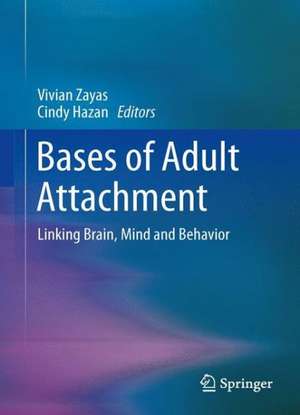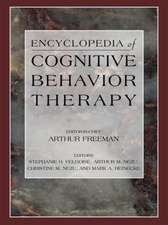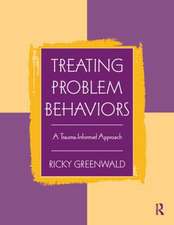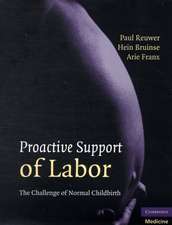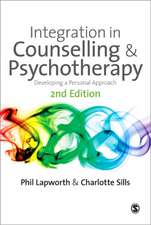Bases of Adult Attachment: Linking Brain, Mind and Behavior
Editat de Vivian Zayas, Cindy Hazanen Limba Engleză Hardback – 8 ian 2015
A much-needed corrective, Bases of Adult Attachment examines this under-investigated topic with an eye toward creating a robust theoretical model. The first volume of its kind, its multilevel approach integrates current findings from neuroscience and psychology to analyze the processes by which adult relationships develop, mature, function and dissolve. Here in relevant detail are factors contributing to initial attraction, possible scenarios in the evolution from friendship to attachment and the changes that occur on both sides of a relationship as partners mutually influence each other's behavior, emotions, cognition and even physiology. And expert contributors address long-neglected questions in the field with stimulating topics such as:
- The distress-relief dynamic in attachment bonding.
- An expectancy-value approach to attachment.
- The biobehavioral legacy of early attachment relationships for adult emotional and interpersonal functioning.
- How early experiences shape attraction, partner preferences, and attachment dynamics.
- How mental representations change as attachments form.
- Insights into the formation of attachment bonds from a social network perspective.
| Toate formatele și edițiile | Preț | Express |
|---|---|---|
| Paperback (1) | 383.33 lei 43-57 zile | |
| Springer – 22 oct 2016 | 383.33 lei 43-57 zile | |
| Hardback (1) | 390.63 lei 43-57 zile | |
| Springer – 8 ian 2015 | 390.63 lei 43-57 zile |
Preț: 390.63 lei
Nou
Puncte Express: 586
Preț estimativ în valută:
74.75€ • 78.25$ • 61.85£
74.75€ • 78.25$ • 61.85£
Carte tipărită la comandă
Livrare economică 07-21 aprilie
Preluare comenzi: 021 569.72.76
Specificații
ISBN-13: 9781461496212
ISBN-10: 1461496217
Pagini: 250
Ilustrații: XIII, 196 p. 7 illus.
Dimensiuni: 155 x 235 x 17 mm
Greutate: 0.48 kg
Ediția:2015
Editura: Springer
Colecția Springer
Locul publicării:New York, NY, United States
ISBN-10: 1461496217
Pagini: 250
Ilustrații: XIII, 196 p. 7 illus.
Dimensiuni: 155 x 235 x 17 mm
Greutate: 0.48 kg
Ediția:2015
Editura: Springer
Colecția Springer
Locul publicării:New York, NY, United States
Public țintă
ResearchCuprins
Part I: Introduction: Introduction and overview.- Part II: The processes that promote adult attachment formation: The distress-relief dynamic in attachment bonding.- An expectancy-value approach to attachment.- Part III: The effect of previous experience on adult attachment formation and maintenance.- Attachment and relationships across time: An organizational-developmental perspective.- The biobehavioral legacy of early attachment relationships for adult emotional and interpersonal functioning.- How early experiences shape attraction, partner preferences and attachment dynamics.- Part IV: Development and change in adult attachment bonds: Insights into the formation of attachment bonds from a social network perspective.- From an unknown other to an attachment figure: How do mental representations change as attachments form?.- Evidence from fMRI studies of adult pair-bonding.
Recenzii
“This is a strong contribution to the literature on adult attachment. Each chapter is capably written by researchers who fit their work into a larger puzzle, providing new insights, asking probing questions, carefully considering alternative explanations, and providing stimulating directions for future research. Clearly the topic of adult attachment has a rich future, and this volume provides a first-rate look at the current state of the field.” (Susan L. O’Donnell, PsycCRITIQUES, Vol. 60 (32), August, 2015)
Notă biografică
Vivian Zayas is an Associate Professor of Psychology and Director of the Personality, Attachment, and Control Laboratory at Cornell University. Her research examines the cognitive and affective processes that regulate behaviors within close relationships. She approaches the study of the individual and his or her relationships from a multi-level, interdisciplinary perspective that bridges the study of attachment processes with research on executive control and self-regulation and blurs traditionally defined boundaries between social and personality psychology and cognitive and cognitive neuroscience. Her research appears in journals such as Psychological Science, Journal of Personality and Social Psychology, Proceedings of the National Academy of Sciences. Personality and Social Psychology Bulletin, Child Development, Nature Neuroscience, and Journal of Personality. She has received funding from National Science Foundation and National Institutes of Health.
Cindy Hazan received her Ph.D. from Denver University. Her current research focuses on the normative aspects of adult attachment formation and maintenance, with special emphasis on identifying markers of attachment at multiple levels of functioning. She is an associate professor in the Department of Human Development at Cornell University.
Cindy Hazan received her Ph.D. from Denver University. Her current research focuses on the normative aspects of adult attachment formation and maintenance, with special emphasis on identifying markers of attachment at multiple levels of functioning. She is an associate professor in the Department of Human Development at Cornell University.
Textul de pe ultima copertă
A great deal is known about how infants form attachments, and how these processes carry over into adolescence. But after that, the trail grows cold: the study of adult attachment emphasizes individual variations, paying little attention to the normative mechanisms of adult bonding.
A much-needed corrective, Bases of Adult Attachment examines this under-investigated topic with an eye toward creating a robust theoretical model. The first volume of its kind, its multilevel approach integrates current findings from neuroscience and psychology to analyze the processes by which adult relationships develop, mature, function, and dissolve. Here in relevant detail are factors contributing to initial attraction, possible scenarios in the evolution from friendship to attachment, and the changes that occur on both sides of a relationship as partners mutually influence each other's behavior, emotions, cognition, and even physiology. And expert contributorsaddress long-neglected questions in the field with stimulating topics such as:
A much-needed corrective, Bases of Adult Attachment examines this under-investigated topic with an eye toward creating a robust theoretical model. The first volume of its kind, its multilevel approach integrates current findings from neuroscience and psychology to analyze the processes by which adult relationships develop, mature, function, and dissolve. Here in relevant detail are factors contributing to initial attraction, possible scenarios in the evolution from friendship to attachment, and the changes that occur on both sides of a relationship as partners mutually influence each other's behavior, emotions, cognition, and even physiology. And expert contributorsaddress long-neglected questions in the field with stimulating topics such as:
- The distress-relief dynamic in attachment bonding.
- An expectancy-value approach to attachment.
- The biobehavioral legacy of early attachment relationships for adult emotional and interpersonal functioning.
- How early experiences shape attraction, partner preferences, and attachment dynamics.
- How mental representations change as attachments form.
- Insights into the formation of attachment bonds from a social network perspective.
Caracteristici
Offers a new theoretical framework for the normative developmental processes Links neuroscientific findings with psychological processes and behavior Focuses on the development of adult attachment Includes supplementary material: sn.pub/extras
